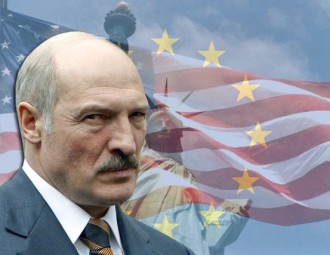Opinion: Minsk won’t introduce changes to parliamentary elections to normalise relations with the US

The Belarusian authorities hope that the White House would reduce claims in respect of democracy and human rights in exchange for neutrality in the confrontation between the West and the Kremlin.
The Belarusian authorities are ready to demonstrate to Washington some relaxation of repression against the opposition and some progress in the elections’ organisation, but without significant changes and effects on the election results.
Recently, President Lukashenka met with outgoing US Charge d’Affaires in Belarus Scott Roland.
The Belarusian Foreign Ministry has approved the US Embassy staff increase to 9 persons. Two new staff members will arrive in Minsk in September this year. In addition, the United States hopes to receive permanent accreditation of its military attaché from the Belarusian authorities.
Since 2008, there is no full-fledged diplomatic mission of the United States to Belarus. In 2008, following the request of the Belarusian authorities, the US Embassy staff was reduced to five from 35. Later, the Belarusian Ambassador to the United States was recalled for consultations to Minsk and the Belarusian authorities insisted that US Ambassador Karen Stewart left Belarus.
Unlike contacts with the European capitals, relations between Minsk and Washington are not developing by inertia. In early June 2016, the White House extended the sanctions against President Lukashenka and nine members of the Belarusian government for undermining the democratic process and institutions. Nevertheless, Minsk’s reaction to the extension of US sanctions against the Belarusian leadership was quite constructive.
The negotiations on Belarusian-American normalisation began amid increasingly aggressive Kremlin’s foreign policy and the invasion of Ukraine. In 2014, Minsk authorized staff increase for the US embassy from five to six diplomats. In addition, media often speculated that full-scale US diplomatic representation in Minsk could be restored. Outgoing head of the US Embassy Scott Rowland said that talks about the exchange of ambassadors between Minsk and Washington could resume after the parliamentary campaign in Belarus and the US presidential elections this year.
While meeting with the outgoing US Embassy head, President Lukashenka talked about Belarus’ independence and sovereignty, "The independence and sovereignty for me as the president and for the Belarusian people is sacred. It is an icon. We will never agree to be a non-sovereign state, to be dependent on someone else”.
Apparently, the Belarusian government hopes for the unconditional normalisation of relations with the United States, following the example of relations with European countries. In contacts with Washington, Minsk anticipates to emphasise growing geopolitical conflicts in the region, strengthening Belarus’ independence and attempts to remain neutral in the confrontation between the Kremlin and the West, including the denial to deploy Russian military facilities in Belarus. However, the Belarusian authorities do not plan to change approaches to the domestic opposition.
Despite high level rhetoric about the need to restore relations between the US and Belarus, the Belarusian Foreign Ministry sharply criticised the US Department of State report ‘Trafficking in Persons 2016’, "The following opus of the US State Department on human trafficking, where it concerns Belarus, is far from objectivity". The report criticised Minsk for not doing enough to combat forced labour within the country, which was why the drafters placed Belarus at the bottom of the list.
That said, the US recently introduced sanctions against Belarusian Belvneshpromservice company, together with some Russian enterprises.
Overall, the Belarusian authorities will seek to demonstrate some progress in the human rights field and may relax repression against the opposition in order to create a positive background for the normalization of relations with the United States.
-
03.01
-
07.10
-
22.09
-
17.08
-
12.08
-
30.09








































